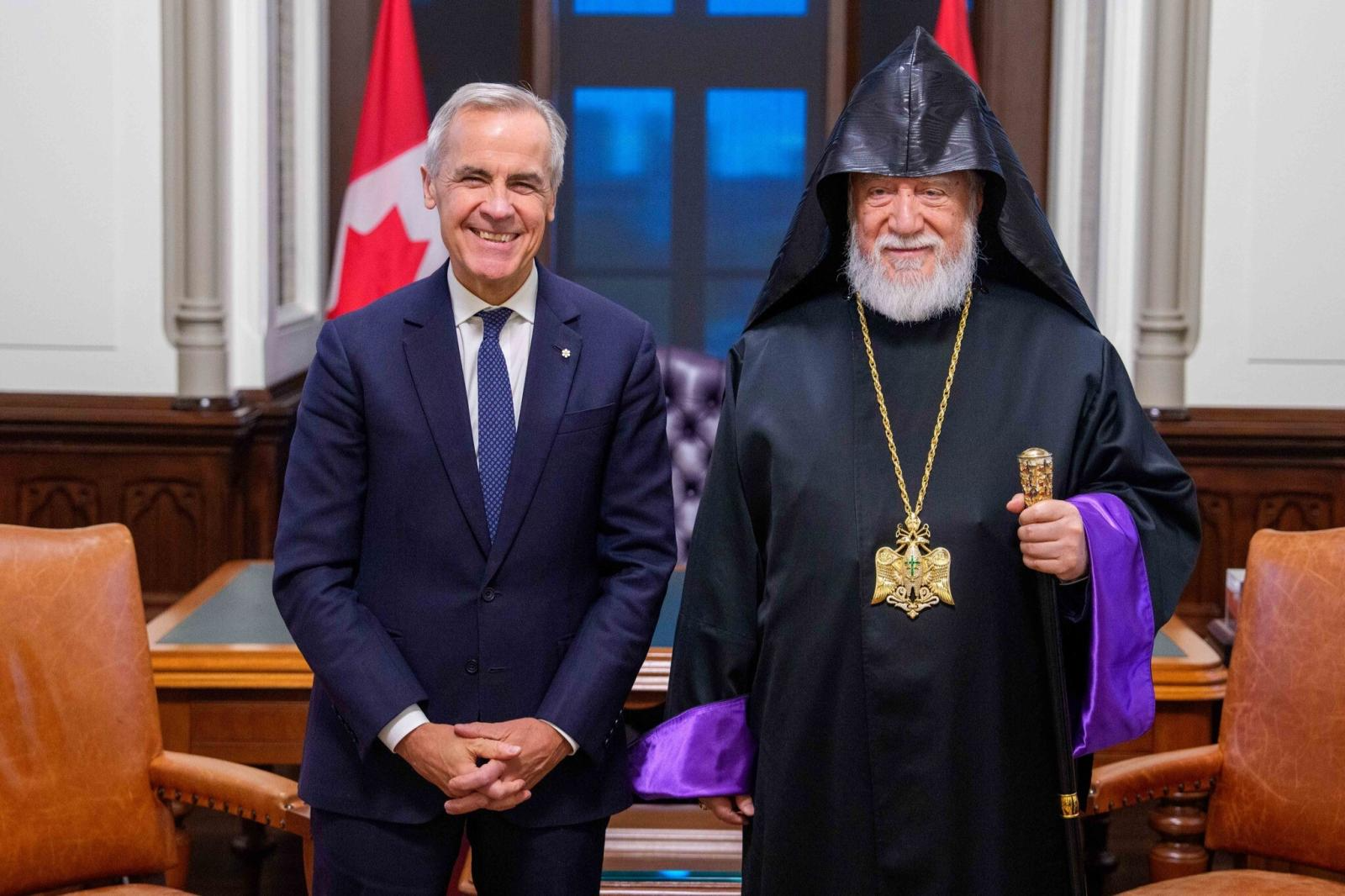Distorted narratives risk reversing South Caucasus peace progress [OPINION]
![Distorted narratives risk reversing South Caucasus peace progress [OPINION]](https://www.azernews.az/media/2025/10/28/comic_4.png)
Canadian Prime Minister Mark Carney recently met with Catholicos Aram I of the Great House of Cilicia in Ottawa, during which a number of politically charged issues were discussed. Interestingly, Armenian Prime Minister Nikol Pashinyan’s recent criticism of the clergy contained a rare moment of logic - his question as to “why the Church is more preoccupied with politics than with spiritual and moral matters.” This argument has now moved beyond rhetoric, sparking serious internal divisions within Armenia itself.
In practice, it has become almost customary for Armenian clerics to act as parallel politicians, discussing every issue, whether or not they understand it, and attempting to govern alongside the government.
It is therefore hardly surprising that during Catholicos Aram I’s recent meeting with the Canadian PM, topics entirely outside the Church’s mandate were raised, including calls for the illegal return of Armenians who voluntarily left Garabagh to the territory of Azerbaijan, appeals for the release of Armenian citizens convicted of war crimes, crimes against humanity committed in Garabagh, and several other irrelevant political matters.

It is no coincidence that this narrative is being revived and being mentioned again and again, at a moment when Azerbaijan and Armenia are moving closer toward signing a long-awaited peace agreement. Similar topics have surfaced in other diplomatic contexts, including during the Washington Talks in August and a bilateral exchange between the Speakers of Parliament of both countries in Switzerland last week on the sidelines of the UN session. Yet, Azerbaijan has made it clear that these matters are not, and will not be, part of the negotiation agenda.
The deliberate use of the term “Artsakh” in such discussions exposes the fundamental illegality and political manipulation behind this rhetoric. It is not an internationally recognized toponym, nor acknowledged by any state or international organization. Instead, it is a propagandistic term used to challenge Azerbaijan’s sovereignty and perpetuate the illusion that a so-called independent entity ever existed within its internationally recognized borders.
Such rhetoric is not merely inaccurate, it is destabilizing. It undermines the fragile progress achieved since the 2020 and 2023 post-war processes, emboldening those in Yerevan and among the diaspora who remain intent on preserving outdated revanchist ideas. Each renewed call for the “release of prisoners” or the “return to Artsakh” fuels divisions and delays reconciliation between the two nations that have endured decades of conflict and displacement.
In the Apostolic Church’s view, peace is seen not as a moral duty, but rather as a lack of moral courage. This shift in ethical perspective, where forgiveness equates to surrender, is being tactically utilized by Armenia’s opposition, which understands that religious leaders can influence people in ways that political speeches cannot. As elections draw near, sermons and places of worship have transformed into venues for political mobilization, uniting the public around an antiquated notion of Armenia’s “national destiny.”
The truth stands far from the narrative pushed by lobbyists. The so-called “prisoners of war” are not political detainees or civilians, they are individuals charged under Azerbaijani and international law for grave crimes, including terrorism, murder, torture, and participation in illegal armed formations. Among them is Ruben Vardanyan, a Russian-born billionaire who briefly presented himself as a “state minister” within the now-defunct separatist regime established on Azerbaijani territory. He is currently being tried at the Baku Military Court for financing terrorism, illegal border crossing, and collaboration with foreign intelligence services.
These are not politically motivated prosecutions but legitimate legal proceedings supported by substantial evidence. Demands for their release disregard Azerbaijan’s judicial sovereignty, trivialize war crimes, and insult the memory of victims who suffered during Armenia’s nearly three-decade occupation of Garabagh. Labeling these prosecutions as “oppression” distorts history and masks accountability under the guise of human rights advocacy.
Canada’s continued engagement in such rhetoric reflects a broader pattern in Ottawa’s foreign policy toward the region. During the 44-day Patriotic War, Canada notably adopted a pro-Armenian stance, halting the export of key technological components used in Türkiye’s Bayraktar UAVs. At various times, anti-Azerbaijani resolutions and initiatives have been tabled in the Canadian Parliament, and Canada has supported the European Union’s controversial observation mission along the Armenia-Azerbaijan border.
Mark Carney’s decision to raise the topics of “Artsakh” and “Armenian prisoners” during his meeting with the Catholicos thus appears less a matter of religious dialogue and more a calculated political signal. It comes even as the Armenian leadership itself has declared the issue of returning Armenians from Garabagh as closed.
Notably, several years ago, a motion was introduced in the Canadian Senate to recognize the so-called “Nagorno-Garabagh Republic” — a proposal that was ultimately rejected. Yet, the reemergence of similar talking points in Ottawa today suggests that certain political circles remain unwilling to accept the new geopolitical realities of the South Caucasus. Regardless, this is unacceptable. While retelling past events might not be merely right, it remains important to remember these facts.
Canada cannot claim to support peace while echoing narratives that undermine it. If Ottawa truly seeks to contribute constructively to stability in the region, it's far more prudent to engage with official diplomatic channels to grasp the complexities involved and not through symbolic gestures or one-sided rhetoric that disregard international law and Azerbaijan’s sovereignty. The South Caucasus is turning a new page. Any forces that obstruct this, whether consciously or subconsciously, stand against the future of the entire region. Azerbaijan has chosen peace and development.
Here we are to serve you with news right now. It does not cost much, but worth your attention.
Choose to support open, independent, quality journalism and subscribe on a monthly basis.
By subscribing to our online newspaper, you can have full digital access to all news, analysis, and much more.
You can also follow AzerNEWS on Twitter @AzerNewsAz or Facebook @AzerNewsNewspaper
Thank you!

